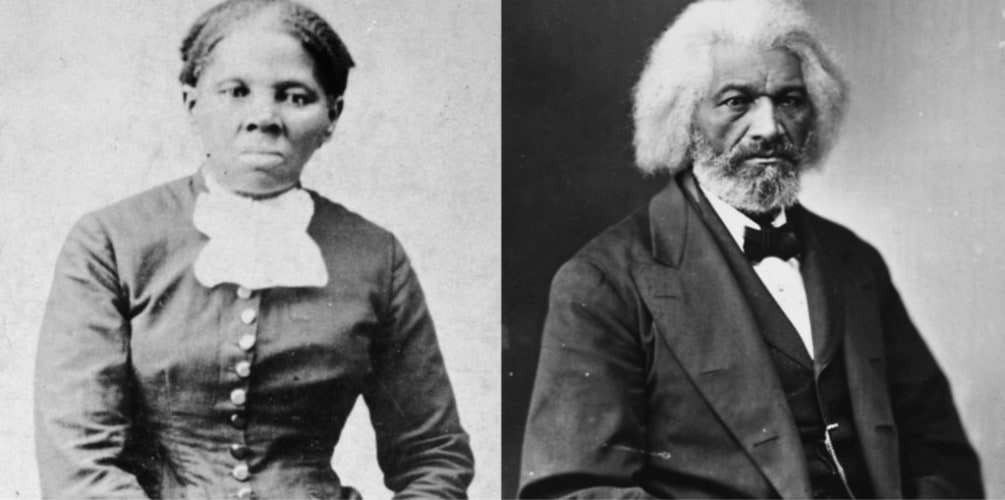
By David Rintoul, World BEYOND War Online Course Participant
Frederick Douglass once said, “Power concedes nothing without a demand. It never did and it never will. Find out just what any people will quietly submit to and you have found out the exact measure of injustice and wrong which will be imposed upon them.”
Governments have never conceived of reforms that would benefit ordinary citizens and then graciously bestowed them on a docile public. Social justice movements have always had to confront the ruling elite and, as the First Amendment puts it, “to petition the Government for a redress of grievances.”
Of course, Douglass was an abolitionist and his specific campaign was against slavery He had been enslaved himself, and yet he was a gifted author and orator despite his lack of formal education. He was living proof that people of colour were the intellectual match of anyone else.
In spite of the radical tone of the quote I started out with, Douglass was a champion of tolerance and reconciliation. After emancipation, he took part in open dialogue with former slaveholders to find ways for society to move forward in peace.
Some of his peers in the abolitionist movement challenged him on this, but his rebuttal was, “I would unite with anybody to do right and with nobody to do wrong.”
Douglass was also not above challenging his political allies. For example, he was disappointed with Abraham Lincoln for not openly supporting the right of African Americans to vote in the 1864 presidential election.
Instead, he publicly endorsed John C. Fremont of the Radical Democracy Party. Fremont had no chance of winning, but he was a wholehearted abolitionist. Douglass’ very public protest vote was an open rebuke to Lincoln and strongly influenced Lincoln’s decision to enact the 14th and 15th amendments a year later.
In 1876, Douglass spoke in Washington DC at the dedication of the Emancipation Memorial in Lincoln Park. He called Lincoln “the white man’s president” and outlined both his strengths and weaknesses from an enslaved person’s perspective.
Even so, he concluded that for all his faults, “Though Mr. Lincoln shared the prejudices of his white fellow-countrymen against the Negro, it is hardly necessary to say that in his heart of hearts he loathed and hated slavery.” His speech is an early example of the concept of truth and reconciliation.
Another example of civil society leading the charge against slavery was Harriet Tubman and the Underground Railroad of which she was a leading member. Like Douglass she had been enslaved and managed to escape. Rather than focusing on her own freedom, she began arranging to help her extended family to escape from their captors.
She went on to assist other enslaved people to escape to freedom through the secret network of Underground Railroad supporters. Her code name was “Moses” because she led people out of bitter bondage into the promised land of freedom. Harriet Tubman never lost a passenger.
In addition to leading the Underground Railroad, after emancipation she became active in the Suffragettes. She remained a champion of human rights for African Americans and for women until she passed away in 1913 in a nursing home she herself had founded.
Of course, not all abolitionists were African American. Harriet Beecher Stowe, for example, was one of many white Americans who played the role of ally to the enslaved people of her generation. Her novel and play, Uncle Tom’s Cabin won over many people of her “race” and class to support the abolition of slavery.
Her story made the point that slavery touches all of society, not merely the so-called masters, traders and the people they enslaved. Her book broke publishing records and she too became a confidante of Abraham Lincoln.
So we see that the abolition of slavery came about through actions by ordinary citizens who never held elected office. I could also mention that Dr. King never held any official government position. The civil rights movement, from the abolition of slavery to desegregation in the 1960s is primarily the result of a long tradition of peaceful civil disobedience.
Readers will notice that I’ve left out something enormously important. I haven’t mentioned the Civil War. Many would argue that the Union Government’s military actions to overthrow the Confederacy were what actually abolished slavery once and for all.
In his book, War is Never Just, David Swanson builds a convincing argument that the Civil War was a distraction from the abolitionist movement. Slavery became a rationalization for the violence, much as weapons of mass destruction were the false rationalization for the invasion of Iraq in 2003.
As Swanson puts it, “The cost of freeing the slaves—by “buying” them and then granting their freedom—would have been far less than the North spent on the war. And that’s not even counting what the South spent or factoring in human costs measured in deaths, injuries, mutilations, trauma, destruction, and decades of lasting bitterness.”
In the end, history shows that it was the actions of ordinary citizen activists like Douglass, Tubman, Beecher Stowe and Dr. King that restored the human rights of enslaved people and their descendants in America. Their tireless activism and commitment to speak truth to power forced an ambivalent Lincoln and later Presidents Kennedy and Johnson to get off the fence and do the right thing.
Activism by civil society is the key to establishing social justice.
David Rintoul has been a participant in World BEYOND War online courses on war abolition.












One Response
we should not have been criminals of war or anything! be the inhabitant of the earth!